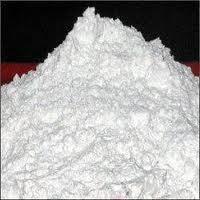Difference between revisions of "Calcium Tartrate"
| Line 1: | Line 1: | ||
{{Infobox_Oils | {{Infobox_Oils | ||
| − | | image = | + | | image = Calcium_Tartrate-1.jpg |
| origin = - | | origin = - | ||
| density = - | | density = - | ||
| Line 9: | Line 9: | ||
| risk factors = - | | risk factors = - | ||
}} | }} | ||
| − | ==Description== | + | ==Description / Applications== |
| − | + | Calcium tartrate is a byproduct of the wine industry, prepared from wine fermentation dregs. It is the calcium [[salt]] (white powder) of tartaric acid, an acid most commonly found in ripe [[grapes]]. Its solubility decreases with colder temperature, which results in the forming of whitish (in red wine often reddish) crystalline clusters as it precipitates. It finds use as a food preservative and acidity regulator. <br><br> | |
| − | <br><br> | + | ==Shipment / Storage== |
| − | < | + | Keep container tightly closed. Keep container in a cool, well-ventilated area. Do not store above 23°C (73.4°F).<br><br> |
| + | ==Risk Factors== | ||
| + | Keep away from heat. Keep away from sources of ignition. Empty containers pose a fire risk, evaporate the residue under a fume hood. Ground all equipment containing material. Do not breathe dust.<br><br> | ||
| + | Reference is made to the relevant IMO regulations on hazardous cargo. See also MSDS sheet(s).<br><br> | ||
| + | [[Category:Products]] | ||
[[Category:Oil and chemicals]] | [[Category:Oil and chemicals]] | ||
| − | |||
Revision as of 15:05, 30 October 2012
| Infobox on Calcium Tartrate | |
|---|---|
| Example of Calcium Tartrate |  |
| Facts | |
| Origin | - |
| Density (in t/m3) | - |
| Temperature (in oC) | - |
| Humidity / moisture | - |
| Ventilation | - |
| Self-heating / spontaneous combustion | - |
| Risk factors | - |
Calcium Tartrate
Description / Applications
Calcium tartrate is a byproduct of the wine industry, prepared from wine fermentation dregs. It is the calcium salt (white powder) of tartaric acid, an acid most commonly found in ripe grapes. Its solubility decreases with colder temperature, which results in the forming of whitish (in red wine often reddish) crystalline clusters as it precipitates. It finds use as a food preservative and acidity regulator.
Shipment / Storage
Keep container tightly closed. Keep container in a cool, well-ventilated area. Do not store above 23°C (73.4°F).
Risk Factors
Keep away from heat. Keep away from sources of ignition. Empty containers pose a fire risk, evaporate the residue under a fume hood. Ground all equipment containing material. Do not breathe dust.
Reference is made to the relevant IMO regulations on hazardous cargo. See also MSDS sheet(s).











